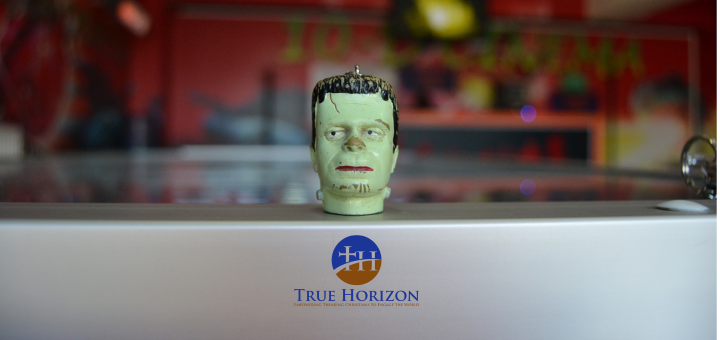Defrocking The Priests Of Scientism
The way large church authorities deal with heretics hasn’t changed much over the centuries. They demand adherence to dogma. They threaten or silence those who defy the hierarchy. Finally, they excommunicate those who refuse to submit to their demands. The religion of scientism is no different. Denying its dogma will have consequences. Heresy will be punished. No matter which denomination they represent, scientism’s priests are ruthless enforcers of the church’s rules.
We’re All “Religious”
The “skeptical” materialist, Michael Shermer has offered the following as a description of his atheism:
“There’s no, like, central set of tenets that we adhere to or believe in, or anything like … a Christian or a Jew or whatever. We don’t have anything like that, because there is nothing. It’s just simply we just don’t believe.”
Shermer’s denial of any adherence to religious belief is instructive. It pays to remember what a “religion” is. This is especially true because Dr. Shermer regularly rejects the legitimacy of any religious point of view in the scientific marketplace of ideas.
A religion is a template we use to understand and respond to the world. Everybody has one. Shermer’s religion is simply informed by a belief that God does not exist. But that assertion does not allow him to escape the fact that he holds to a systematic view of the world. He has just tried to construct his ideas about ethics, truth, and ultimate reality without God. The question is not about who holds religious views. The question is which of those views correspond best with the way the world actually is.
The Atheist Religion
Pointing out the religious nature of scientific materialism is not just a clever way to make a trivial point. Not when we have been trained to believe that any discussion about things that really matter must begin by accepting something like Shermer’s naturalism. Any view that questions that mindset is categorically dismissed as a matter of personal opinion that no one needs to take seriously. Only scientists may offer us “proof.” Our scientific culture ordains scientists as the source of all wisdom and authority.
They are scientism’s priests.
The Religion Of Scientism
If Materialism (the idea that everything is physical) is true, this all makes sense. If the physical world is all that is real, every phenomenon must be understood as a consequence of molecules in motion. And if material causes are the only kind we are allowed to invoke, it stands to reason that science – the study of the material world – is the only explanatory game in town. If science holds all truth, our belief in science – scientism – is our greatest hope.
But if Scientific Materialism is the only tool we’re allowed to use to analyze things, what do we do with things that it cannot explain even in principle? In other words, how do the priests of scientism propose to explain real things that are not physical?
Can Science Disprove God?
Surely you’ve heard this one: “Science has disproved God!” This is an odd claim. It has to take into account two mutually exclusive truths. First, that science is the study of the physical universe. Second, that no credible theist has ever claimed that God is part of the physical universe.
These details seem to be lost on the priests of scientism who proclaim their disbelief in the deity with a smug wave of the hand and a demand for “evidence.” They insist on having physical evidence for a non-physical entity. But the scientific clergy has already dismissed such a thing by mere assumption.
Do they not see the circularity in their reasoning? Without it, the entire scaffolding of scientism collapses under the weight of its own criteria for identifying truth.
The Language Of Science
Take mathematics. It is wildly ironic that the priests of scientism seem to be ignorant of the language of their faith. Science depends on mathematics to make its case. But Materialist scientists have described mathematics as “an abstract, immutable entity existing outside space and time.” Math describes the structure, orderliness, and invariant properties we observe in nature. Cosmologist Max Tegmark calls it “something bordering on the mysterious” that has “an eerily real feel” to it and satisfies “a central criterion of objective existence.” Stephen Hawking wondered where things like mathematics and the laws of physics and chemistry could have originated.* Even atheist Bertrand Russell once remarked that mathematics holds both “truth and supreme beauty.”
Mathematics is the language of science – the vocabulary of those who deny non-physical reality. Yet mathematics is a combination of numbers and concepts. Neither of these is physical. But both of them are undeniably real.
Faith In The Unseen And Unseeable
Scientists use mathematics to present the quantum metaphysics they use to evade the clear inference that a Big Bang requires a Big Banger. The design of the universe, they say, really requires no explanation at all. Their math tells them that the inexplicable degree of fine-tuning in this universe implies that our universe is just one among an infinite number of alternate universes. We just happen to live in the one that got things just right.
As Max Tegmark has put it, this “idea … seems strange and implausible, but it looks as if we will just have to live with it because it is supported by astronomical observations.”
Of course, the priests never address the fact that these alternate universes are, by definition, unobservable. In other words, the priests who demand “evidence” from theists actually hold “blind faith” in something for which they can never gather physical evidence.
They just want us to “live with it.”
Blind Answers To Life’s Big Questions
Agent causation. Life from non-life. Mind from matter. Each of these are things we see and experience every day. And each is completely inconsistent with a materialistic view of the world.
This is not to say that the scientific enterprise is misguided. Far from it. The point is that Christian theism understands science in its proper context. Theists see science as the rational method we use to discover and understand the order and majesty of God’s creative work. When you look at it that way, you see that theism makes each of these conundrums vanish. They each make sense inside a more comprehensive view of nature. It turns out that the explanatory power of Christian theism far exceeds the materialistic alternative.
Priests And Prophets
Scientism actually diminishes science. It idolizes a view of the world that cannot account for all of reality. It tells us, “Be patient. Science may not have explained these things yet, but it will. Just give it time.”
The priests of scientism think this is persuasive. But their pious exhortation serves only to confirm their religious zeal.
The priests, it seems, also fancy themselves as prophets.
* Quoted by Dean Overman, A Case Against Accident and Self-Organization (New York, New York: Rowman and Littlefield Publishers, Inc. 1997), 159.






“The priests, it seems, also fancy themselves as prophets.” <— Nice.